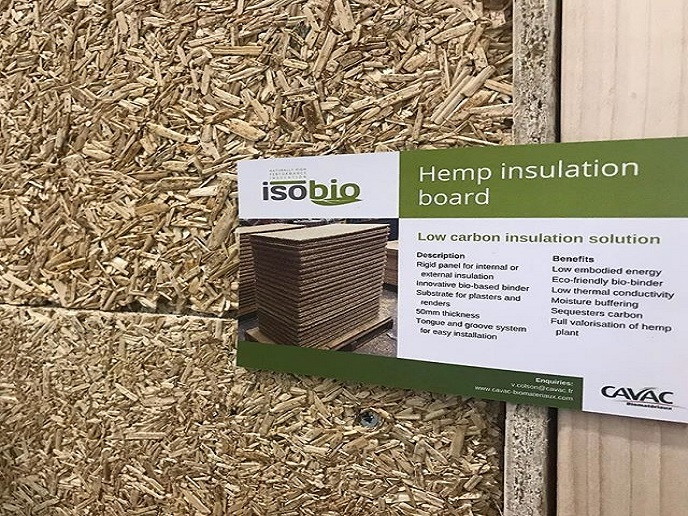Green building insulation solutions deliver on performance and price
The performance of insulating materials impacts on energy usage, in turn affecting costs and potentially CO2 emissions, depending on the source of energy. Materials and production processes vary, with many insulating materials using chemical additives or applied coatings to improve moisture balance or impart flame retardancy. All these factors can affect costs and carbon footprint as well as human health and safety and environmental impact. The EU-funded ISOBIO(opens in new window) project developed novel insulating materials and composites combining bio-based aggregates with innovative binders. The result is a truly eco-friendly solution that outperforms conventional materials and costs significantly less. Goodness from the earth ISOBIO developed three novel eco-friendly insulating construction materials for new and refurbished buildings using hemp and clay. All three materials can also be integrated into a composite. Rigid insulation applications currently rely largely on synthetic polymeric foams. The project’s alternative, the ISOBIO board, is 100 % natural. Particles of hemp (hemp shiv – chopped pieces of the woody core of the hemp stalk) were bound with a bio-based thermosetting binder to produce a rigid insulating board. As project technical officer Dr Mike Lawrence explains, “This is a revolutionary 100 % bio-based rigid insulation board with enhanced durability and fire-resistance. It uses hemp shiv to confer moisture buffering and breathability, thereby improving indoor air quality.” Lime absorbs CO2 over time as it sets. It also hardens during this process, has disinfectant properties, and buffers humidity. Building on these properties, ISOBIO developed an insulating lime render with a high percentage of hemp shiv aggregates that can be used as an external base coat to any building. Finally, the team produced a novel insulating clay plaster with enhanced moisture buffering properties. It can be used in both new buildings and as an insulating internal plaster in refurbishments. Aside from stand-alone use, the three materials can be integrated in a composite structural panel to maximise their individual benefits. Overcoming challenges, exceeding expectations The ISOBIO rigid board is one of the most important outcomes of ISOBIO, and its final formulation came about in response to innovation required when a planned production facility was no longer available. According to Lawrence, “This resulted in the successful creation of the ISOBIO rigid panel using a thermosetting binder in a way that would not have been possible via the original production line.” In ground-breaking work, the ISOBIO board was successfully produced on industrial scale via a continuous production line. This opens the door to widespread adoption of ultra-low carbon alternative insulating materials across Europe and globally. These innovative and eco-friendly insulation products have exceeded original goals. The products achieve a 50 % reduction in embodied energy and CO2 emissions, 25 % improvement in moisture buffering, 20 % improvement in insulation properties and 30 % reduction in life cycle costs compared with conventional insulation products. In addition, the production cost of an ISOBIO board for new building was calculated to be cheaper than its alternatives by about 56 % in Spain and about 28 % in the UK. Taken together, ISOBIO has paved the way to widespread adoption of its insulating construction materials. Such a transition to eco-friendly, high-performance insulation at a fraction of the cost will help the planet, the construction sector, and the pocketbooks of home and business owners.







